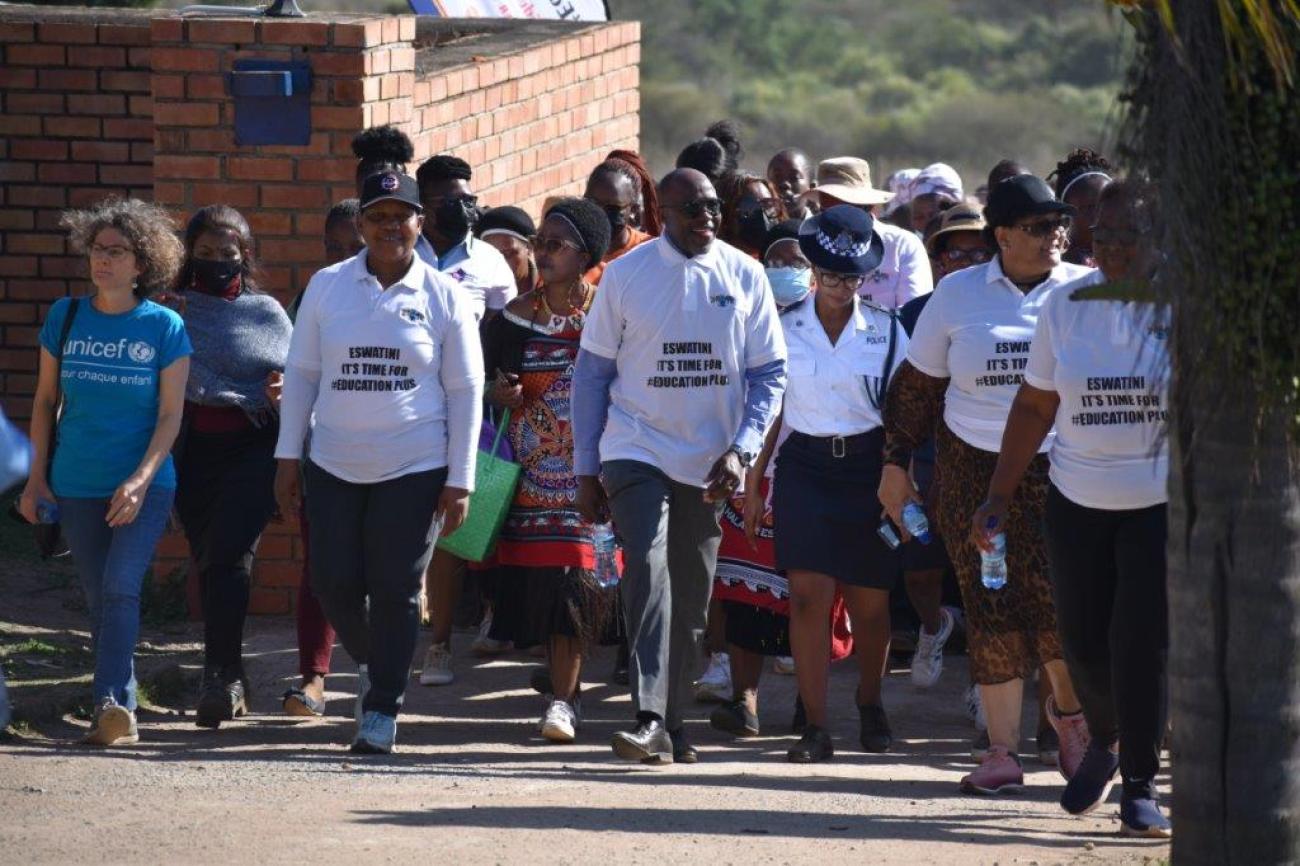On 14 July 2022, the Minister of Education launched Education Plus Initiative which is a high--level global political advocacy drive to accelerate actions and investments to effectively prevent HIV and empower adolescent girls and young women in sub-Saharan Africa, including in Eswatini.
The initiative, which is led by five UN agencies (UNAIDS, UNFPA, UNESCO, UNICEF and UN Women) has the noble vision of a world in which every young person, especially adolescent girls and young women completes primary, secondary, and tertiary education and is empowered to lead a secure, healthy, fulfilling, and productive life—free of gender discrimination, violence, and AIDS.
UN Resident Coordinator, Mr. George Wachira, applauded the five UN agencies for coming together to demonstrate, in practical terms how the UN can achieve greater impact through working more and better together. "By coming together in this initiative, the UN agencies have helped to bring into a sharp focus, the nexus between gender discrimination and violence, sexual and reproductive health, and HIV/AIDS and their impacts on education," he said.
Mr. Wachira expressed concern that there remains too many obstacles to achieving quality education and gender equality, particularly among girls. "There are too many teenage pregnancies, and with them, too many new infections," he told over 600 students at Moyeni High School in Mafutseni Inkhundla where the initiative was launched. "There are too many school drop-outs. There is too much violence and abuse against children, and especially girls, some of them, if true as reported in our papers, reading like horror movies. And cultural norms remain a seemingly immovable mountain against the education and life aspirations of our girls. These are serious concerns and should keep us awake at night."
He also noted that despite remarkable progress made, statistics still show that adolescent girls and young women are disproportionately affected by HIV. Out of the 4,800 new infections recorded in 2021, a total of 1,600 new infections were among adolescent girls and young women, making up more than 33% of the new infections.
The Resident Coordinator committed to continuing UN support the emergence of an increasingly equal world, and education, where accessible and of quality, presents a pathway for lifting millions out of poverty and other disadvantages. "That is why we must work harder to ensure that all obstacles to quality and accessible education – from pandemics, to resources, to violence and discrimination – are not allowed to destroy this great equalizer," he said.
He challenged young people to make their voices heard during the upcoming Transforming Education Summit where pre-Summit consultations have started in Eswatini. "To our young people, my call to you is: Stay hungry! Stay thirsty for knowledge! Stay curious! And stay safe!," he said.
Minister of Education, Hon. Lady Howard-Mabuza, noted that society puts adolescent girls and young women at great risk of getting infected from HIV and gender-based violence and sexual exploitation. He announced that the Government was developing a framework to protect girls from these risks.
View photos from the launch










